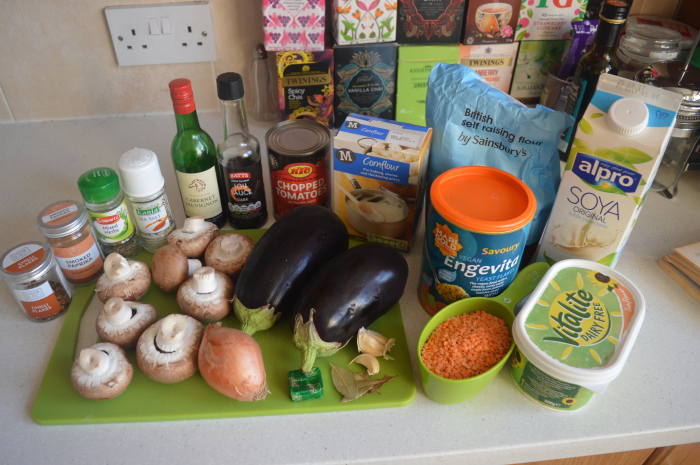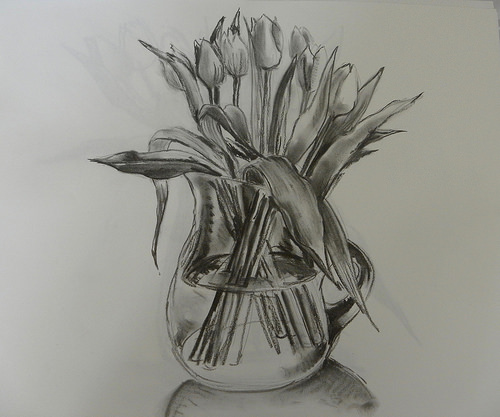‘My favourite dish on the menu, sweetheart, swear to God.’ Nestor lays the plate in front of me. ‘People come in, they see vegetarian moussaka, they think, “if moussaka ain’t meat it ain’t moussaka”, so they order the steak, the pork belly, the lamb chops. They dunno what they missing. Go on. Taste. My own mother, God watch over her soul, that’s her recipe. Hell of a lady. Navy seals, ninjas, those Mafia guys, next to a Greek momma, they a sack of quivering pussies. That’s her, in the frame, over the till.’ He points at the white-haired matriarch. ‘She made this café. She invented no-meat moussaka too, when Mussolini invaded and shot every sheep, every rabbit, every dog. Mama had to – whassaword? – improvise. Marinate the eggplant in red wine. Simmer the lentils, slow. Mushrooms cooked in soy sauce – she added soy sauce after she came to New York. Meatier than meat. Butter in white sauce, cornflour, dash of cream. Heavy on the paprika. That’s the kick. Bon appétit, sweetheart, and –’ he passes me a clinking glass of iced tap-water – ‘save space for dessert. You too skinny.’
Why did it take me 22 years to discover David Mitchell novels? The Bone Clocks satisfies all my book-cravings in one rich serving. It is a novel that pays no attention to the boundaries of geography, time, genre, or the ‘real’, and because of that it’s full of rich and rewarding surprises. It builds up a fantastically immersive world from a series of interlocking narratives, each one as well-realised and compelling as the next. You really can get lost in it. This is the fourth David Mitchell book I’ve read, and I honestly think his style of fusion-writing has changed my perception of what fiction can do.
This extract from The Bone Clocks is part of the section narrated by Dr Iris Fenby Marinus, an ‘Atemporal’ who is born, dies, and is reborn in a new body over endless lifetimes. She is one of the Horologists: a group of Atemporals who describe themselves as ‘herbivorous’, meaning that no living thing dies to pay for their Atemporality. Their arch-enemies, by contrast, are the ‘carnivorous’ Anchorites; a sect of immortals who preserve their eternal youth by sacrificing mortal human beings. The Horologists condemn this slaughter of innocents, and, as it happens, they are also vegetarians. No animals or people are sacrificed to sustain the Horologists’ endless lives.
And the Horologists are in no way denying themselves by being veggie. They love food. Marinus talks about it a lot, and the Horologists make a point of eating together at every possible opportunity, even as their epic supernatural war with the Anchorites reaches its climax. It’s little touches like the immortal warriors enjoying muffins, pancakes, and eggs-benedict with smoked tofu that make The Bone Clocks so much more than just a supernatural thriller. David Mitchell keeps his fantasy narratives firmly in touch with the beauty of everyday life, and with the simple rituals and experiences that underpin our identities and histories as human beings. Marinus uses food to maintain a sense of continuity amidst the dramatic changes she has witnessed over the course of her many lifetimes. As she tucks in to her no-meat moussaka, she reveals that she has been eating at Nestor’s café for two lifetimes now. Reading Nestor’s description of the recipe, it’s not hard to see why!
Nestor had me at “Marinate the eggplant in red wine”. Eggplant (a.k.a aubergine if you live in my part of the world) is one of my favourite vegetables, but I have to admit I’ve been running out of ideas for ways to cook it. The description of a Greek-American family’s inventive signature dish made it sound so delicious that I had to read it several times over. And then of course I had to try it for myself! It’s pretty straightforward to make if you’ve got a bit of time on your hands, and it’s equally easy to make a vegan version if you substitute the butter and milk of the white sauce for margarine, soy milk, and an added touch of nutritional yeast. And boy oh boy, I was not disappointed with the result! This no-meat moussaka will restore your faith in tasty vegan food, just like The Bone Clocks will restore your faith in fiction. Bon Appétit!
No-Meat Moussaka
For the vegetable sauce:
2 small aubergines (or 1 ½ large aubergine)
400g mushrooms
1 large onion
1 cup red lentils
400g tin of tomatoes
3 garlic cloves
A generous splash of red wine
A generous splash of soy sauce
1 veg stock cube
2 – 3 bay leaves
3 teaspoons smoked paprika
3 teaspoons mixed herbs
2 teaspoons chilli flakes
2 teaspoons cornflour
Salt to taste
For the white sauce
25g margarine
25g flour
1 pint / 500ml soy milk
2 teaspoons nutritional yeast
(No cream in this version, sorry Nestor. I swear you won’t miss it!)

Pre-heat the oven to 180 degrees.
For the vegetable sauce, begin by cooking the lentils separately. Bring three cups of water to the boil and add the lentils. Crumble the stock cube and stir it in. Place on a low heat and allow to simmer for approx. 40 minutes.
Chop the aubergine into slices and sprinkle with salt. Cut the mushrooms into slices, dice the onion and garlic. Heat some olive oil in a large pan. Gently fry the aubergine slices, adding a splash of red wine. When the aubergine becomes soft, remove and set aside.
Now fry the onion, garlic and mushrooms in the residue of the red wine, and add the soy sauce. Allow to fry for 7 minutes. Add the tinned tomatoes, lentils, paprika, bay leaves, chilli flakes, mixed herbs and cornflour. Stir thoroughly. Add the aubergine back into the sauce. Allow to simmer for approx. 15 minutes.
For the white sauce, gently heat the margarine in a pan and gradually stir in the flour to make a roux. Pour in the milk gradually and keep stirring to get rid of lumps. Add the nutritional yeast. Bring to the boil and then simmer until the sauce thickens.
Once the two sauces are ready, place the vegetable sauce into a large baking tin. Smother the white sauce over the top. Place in the oven and bake for approx. 25 minutes.
Serve with pitta bread and fresh basil





